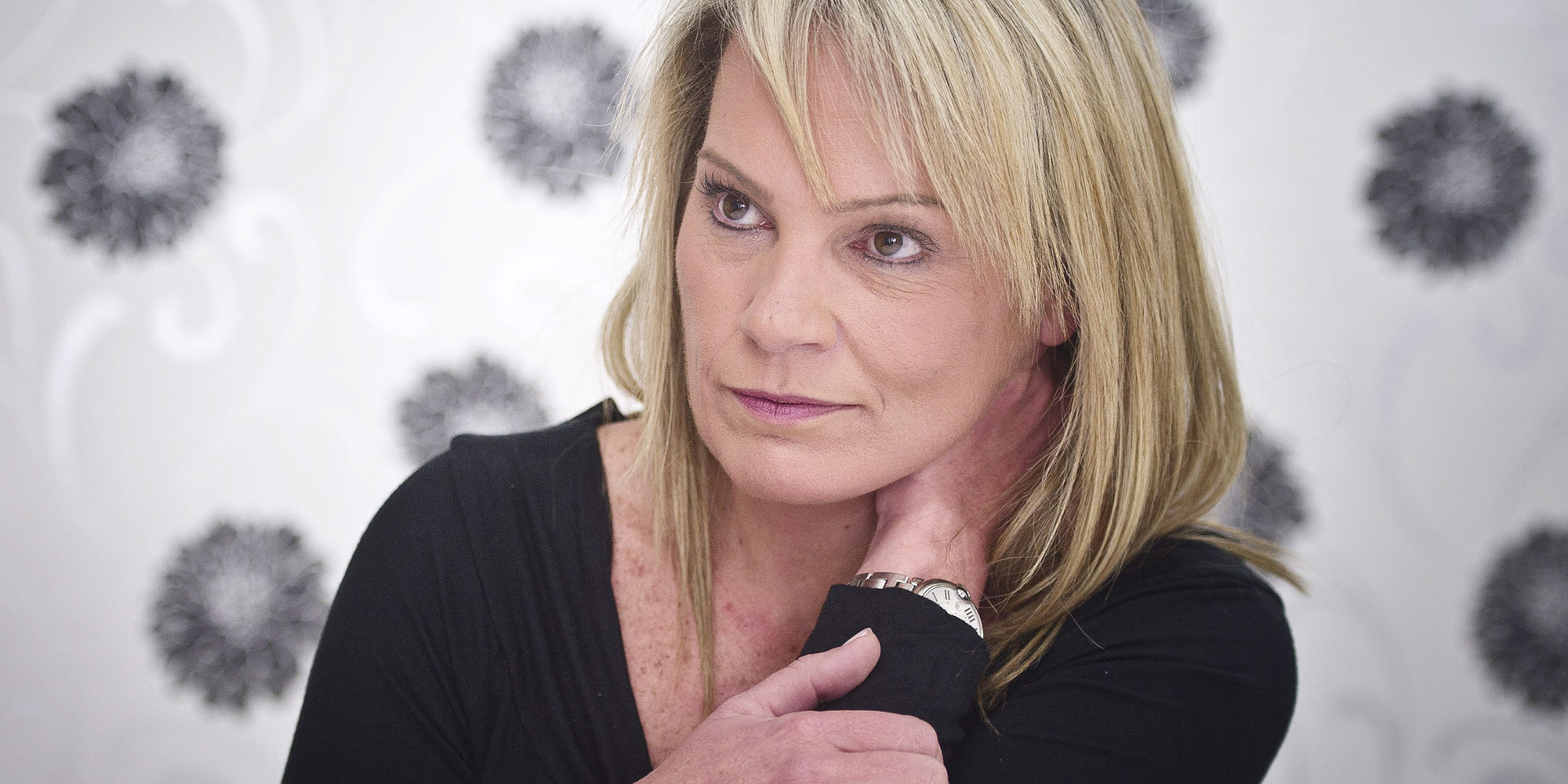Zelda la Grange, who spent almost 20 years in the intimate orbit of a man regarded as one of the world’s greatest statesmen, is of the opinion that many Afrikaners still have no idea of Nelson Mandela’s life story and who and what it was that influenced the choices that led to his election as the first president of democratic South Africa.
At an intimate recent launch at the Nelson Mandela Foundation of the documentary, Mandela – ’n Uitsonderlike Roeping (Mandela – An Exceptional Calling) currently being screened on KykNET at 8pm on Sundays, La Grange told the audience she felt a responsibility and “self-imposed need to tell a story, to add to all the other stories, in my language”.

Zelda la Grange, former personal assistant to Nelson Mandela. (Photo: Gallo Images / Foto24 / Nelius Rademan)
Quoting the author Chimamanda Ngozi Adichie, La Grange said that “we risk a critical misunderstanding” if singular narratives existed in isolation. She added that she had always maintained that “modern history is dependent on people sharing and writing truthfully about their experiences”.
La Grange, born to a conservative Afrikaner family, had her world turned upside down when Nelson Mandela, a man she once regarded as a “terrorist”, stuck out his hand to greet the 23-year-old typist in a corridor of the Union Buildings in 1994.
“All we had in common is that he also just recently started working there, as president of the Republic of South Africa,” La Grange says in a voice-over in Episode One. (All episodes are also available on Showmax).
It was an event that altered the trajectory of La Grange’s life and worldview. Since Mandela’s death in 2013, La Grange has lived with the void left by a man she views as her “mentor, confidant and my rock”.
“His work become my life’s calling. I was his right hand, his pillar. Anyone who wanted to talk to him had to go through me. His death left an enormous void in my life.”
La Grange first began speaking to film producer Carien Loubser after concerns that “many Afrikaans people still only considered Nelson Mandela as the president that appeared at Ellis Park in 1995, wearing a Springbok cap and jersey. But we know that there was much, much more to him.”
The series is based, says La Grange, on the many stories Mandela has shared with her about his childhood and the adults and landscape that shaped him.
“I wanted to travel back to the places he so fondly spoke of and which transported me, and captured my imagination, and yes, in search of traces of Madiba too. History denied me and many others the opportunity of understanding more about Madiba the person and the young boy. I wanted to know more about his mother and father, the events around their deaths and how that affected him.
“I have been fascinated with Justice, the man Madiba considered his brother, and son to the regent that brought him up after his father passed on. I wanted to meet him and share with him memories about his ‘brother’ and friend’s life,” said La Grange.
The series, she added was not her story and also “not the usual Madiba story”.
“For me, this is very personal. I acknowledge and appreciate the responsibility that comes with exploring Madiba’s history, and hope that in the end we have done justice to his legacy and in Afrikaans.”
Travelling to the key places in the Eastern Cape which featured in Mandela’s early life, La Grange said she was saddened to find many, like the Clarkebury Boarding Institute in Engcobo where Mandela was educated in the 1930s, in a state of shocking disrepair.
“Sadly, many of these places need urgent attention, refurbishment and upgrade. This history is all we have. I hope that with visiting and showing these, attention can be drawn to the importance of preserving these and not only those places frequented by everyday tourists. My view is that with prioritising some of these places it could well create a much-needed economic boost to far-off communities especially in the rural Eastern Cape,” she told Daily Maverick.
Along the way in this journey, La Grange speaks to Mandela’s former comrades as well as his grandson Chief Mandla Mandela, who provides intimate anecdotes of the grandfather he knew and the royal lineage that shaped him.
One of La Grange’s first interviews was with the late “Oom” Eddie Daniels who spent 15 years on Robben Island and whom Mandela had described as one of his closest friends.
“Oom Eddie had been diagnosed with two types of cancer and around October 2017 I visited him as I sometimes do with Madiba’s old friends. Madiba felt so strongly about honouring these elderly heroes,” said La Grange.
“My fear is that the old friends will pass and leave with many unexplored stories. Even before we knew exactly where we were going with this documentary, I knew for certain that no story will be complete without capturing Oom Eddie’s memories of Madiba.”
Recording Oom Eddie before he died was a delicate operation.
“It was a beautiful summer’s day in Cape Town without a breeze in the air at his retirement village. We found Oom Eddie in the high-care unit. He insisted that we move to his house on the estate for the interview.
“It took time to move him, but his son and daughter-in-law were gracious and patient. He wanted to show us his mementos of Madiba. My last question of the interview to Oom Eddie was: ‘Oom Eddie, mis u vir Madiba?’ (Uncle Eddie, do you miss Madiba?). There was a pause and in that moment a breeze moved through the house to ring the wind chimes in his doorway. That day I knew we were doing the right thing.” DM




















 Become an Insider
Become an Insider